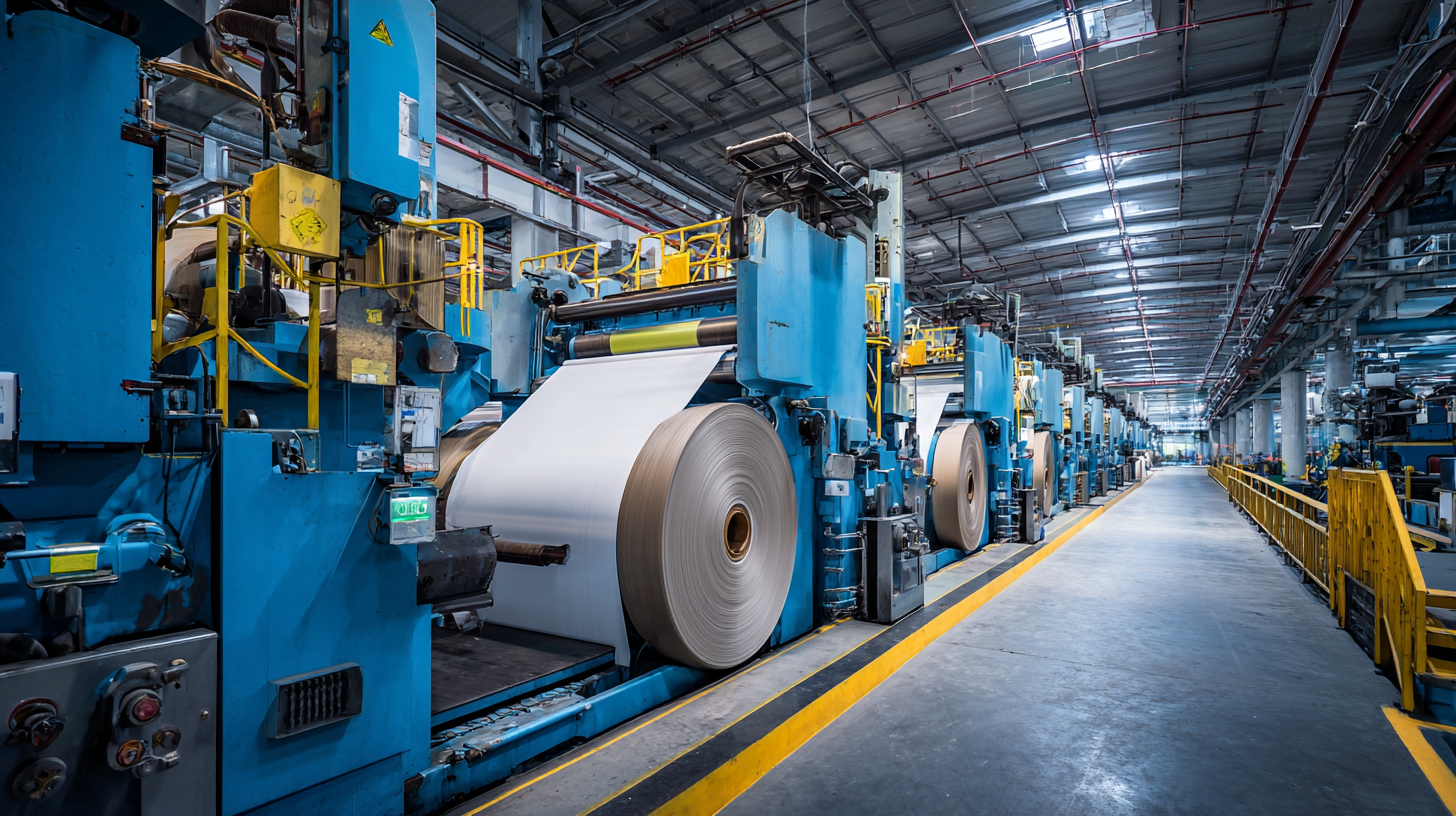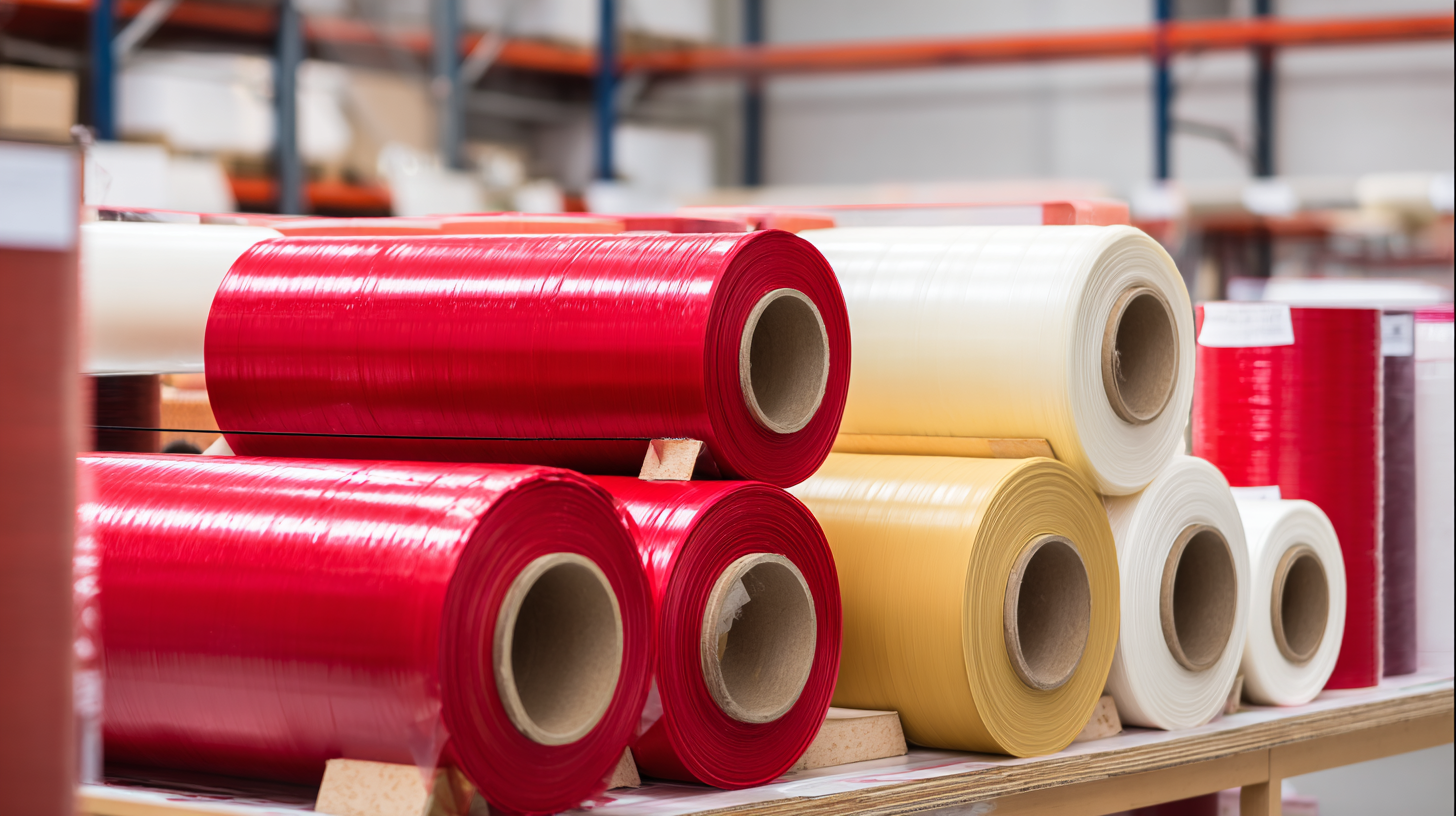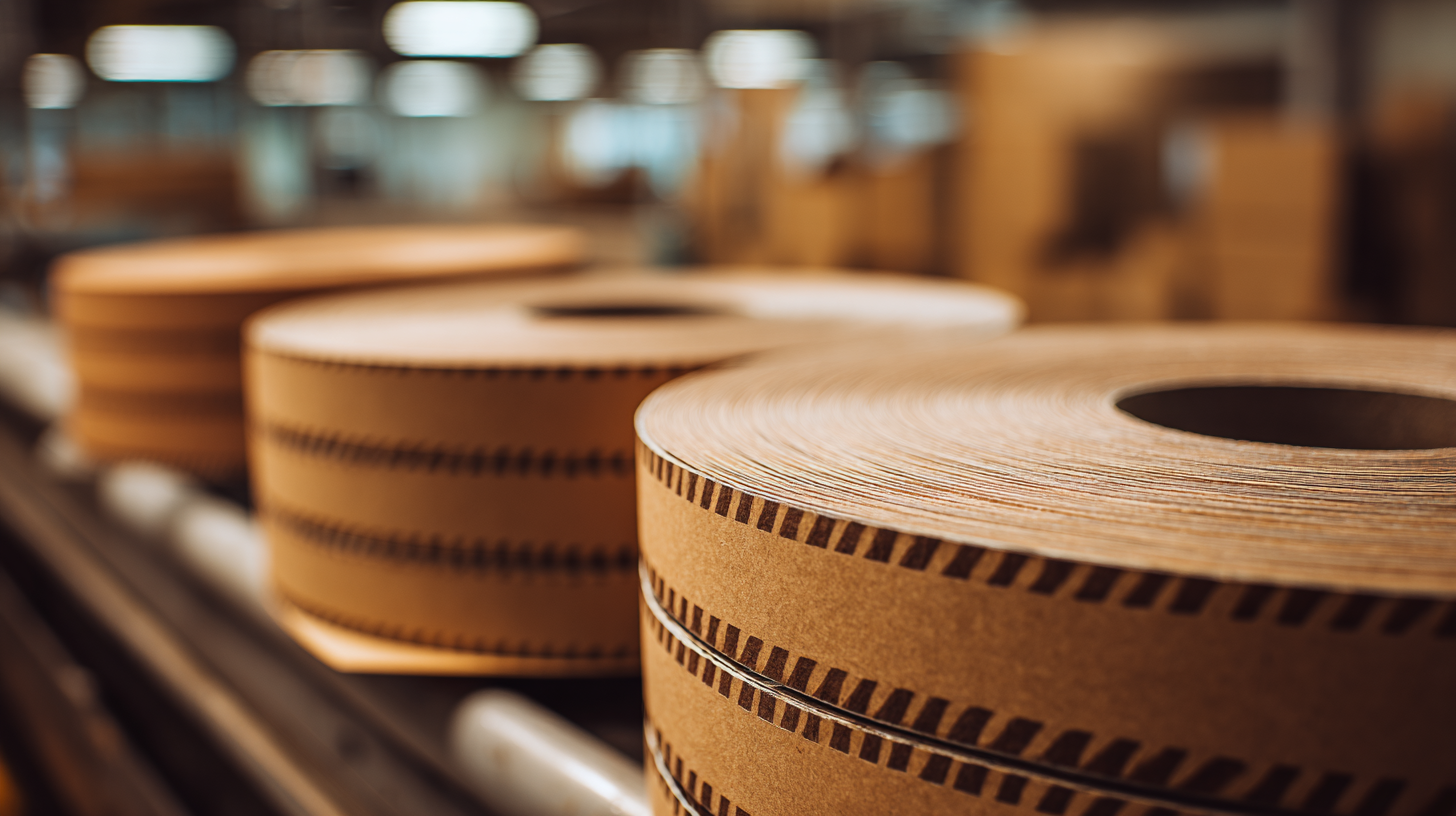Leave Your Message
In today's highly competitive manufacturing landscape, businesses are increasingly recognizing the critical role that Industrial Carrier Tapes play in optimizing operational efficiency and product quality. According to the latest market analysis from Smithers Pira, the global adhesive tape market is projected to reach $64 billion by 2026, driven by the demand for reliable packaging solutions across various industries. Industrial Carrier Tapes, especially those that comply with stringent quality standards, are essential for ensuring the integrity of products during shipping and handling. Companies that invest in high-quality carrier tapes not only enhance their production processes but also minimize material waste and reduce overall costs. Selecting the right manufacturer is therefore paramount, as it directly impacts the reliability and performance of these tapes. This blog will delve into seven compelling reasons why the best Industrial Carrier Tapes are essential for your business and provide guidance on choosing reputable manufacturers, along with valuable comparisons to aid your decision-making.

Choosing the right industrial carrier tapes is crucial for enhancing efficiency in manufacturing and logistics operations. These adhesive tapes not only ensure that components and products are securely held in place but also streamline various processes, reducing the chances of errors and delays. The right tape can influence everything from the speed of assembly lines to the durability of packaged products, making it a vital factor in maintaining workflow productivity.
Moreover, the choice of industrial carrier tapes directly impacts costs. High-quality tapes designed for specific applications can minimize material waste and improve the overall reliability of shipping and handling procedures. Investing in tapes that are designed to withstand environmental stresses, such as temperature fluctuations and humidity, can further ensure that products remain intact during transit. By prioritizing the selection of suitable carrier tapes, businesses can optimize their operations and foster an environment of continuous improvement, ultimately contributing to greater success in a competitive market.

When selecting the best industrial carrier tapes for your business, it’s crucial to focus on key technical specifications that can directly impact your operations. First and foremost, the adhesive strength is vital; it determines how well the tape will hold in various settings. You should assess whether the tape is suitable for the materials your operation uses and if the adhesive can withstand environmental factors such as temperature fluctuations or humidity.
Another critical specification is the thickness of the tape. A thicker tape can provide better durability and resistance to tearing, which is essential for heavy-duty applications. Additionally, consider the backing material of the tape. Different materials offer various levels of flexibility and stretch, which can be beneficial depending on the specific requirements of your packaging or assembly processes.
Ultimately, understanding these technical specifications will ensure you choose the right carrier tape that supports efficiency and reliability in your business operations.
When assessing the adhesive strength of carrier tapes for your applications, several factors come into play. Understanding the composition and properties of the adhesive is crucial, as it directly impacts the performance of your products. Recent studies highlight the significance of tackifier aromaticity, suggesting that variations in aromatic content can enhance adhesive performance in pressure-sensitive adhesives. For instance, a recent report indicates that the global pressure-sensitive adhesive tapes market is projected to reach USD 92.41 billion by 2030, reflecting the increasing reliance on high-quality adhesive solutions across various industries.
Moreover, innovations inspired by biological adhesion, such as the structures found in gecko and mytilus californianus, offer promising insights into developing advanced adhesive joints. Such biomimetic approaches focus on mimicking natural adhesion mechanisms, which could result in superior adhesion properties. With a deeper understanding of these biological systems, manufacturers can create carrier tapes with enhanced durability and performance, catering to diverse industrial needs. As industry dynamics evolve, investing time in evaluating these evolving adhesive properties will ensure that businesses remain competitive and meet market demands effectively.
| Reason | Description | Assessment Method | Adhesive Strength Rating |
|---|---|---|---|
| Efficiency | Reduces the number of errors in packaging processes. | Test packaging speed and error rate. | High (9/10) |
| Cost-effectiveness | Saves money by reducing product loss and waste. | Calculate total packaging waste before and after. | Moderate (6/10) |
| Versatility | Can be used across different industries and applications. | Review range of use cases and materials. | High (8/10) |
| Safety | Ensures products are securely held during transport. | Conduct drop tests and transport simulations. | High (9/10) |
| Quality Assurance | Maintains product integrity through better adhesion. | Inspect product condition after transport. | Very High (10/10) |
| Customization | Offers tailored solutions for specific needs. | Evaluate suitability for specific applications. | Variable (Depending on Needs) |
| Regulatory Compliance | Meets industry standards for safety and environmental impact. | Review certification and compliance documentation. | High (7/10) |
Carrier tapes play a crucial role in the electronics manufacturing industry, ensuring that sensitive components are securely transported while maintaining their integrity. The material of the carrier tape significantly influences both product safety and performance. High-quality materials, such as anti-static plastics, provide essential protection against electrostatic discharge (ESD), which can lead to component failure. Choosing the right carrier tape material not only safeguards delicate parts but also enhances the overall production efficiency.

When selecting carrier tape materials, consider the following tips: First, ensure that the tape's thickness and tensile strength are adequate for the weight and fragility of your components. A thicker tape can prevent damage during handling and transport. Second, evaluate the environmental factors at play—such as temperature and humidity—that could affect material stability. Using UV-stabilized or temperature-resistant materials could prevent degradation over time. Finally, opt for carrier tapes that are compatible with automated feeding systems to streamline the production line, reducing the risk of misfeeds or jams.
By paying attention to the specifics of carrier tape materials, businesses can enhance product safety, reduce waste, and ultimately improve overall performance, making it a critical factor in operational success.
When it comes to industrial carrier tapes, proper storage and handling practices are crucial for ensuring their longevity and effective performance. To maintain the integrity of these tapes, it is essential to store them in a controlled environment. Studies highlight that the degradation of adhesive properties can occur when tapes are exposed to excessive heat or humidity, which can compromise the efficiency of manufacturing processes. For example, maintain ambient temperatures not exceeding 25°C and humidity levels no higher than 60% to prevent any adverse effects.
Furthermore, handling techniques play a significant role in the lifespan of carrier tapes. Gentle handling minimizes physical stress, which can lead to irreversible damage such as creasing or tearing. Experts recommend using specialized dispensers for application processes to avoid unnecessary off-cutting that can result in waste. Additionally, surface cleanliness must be prioritized; contaminants like dust or oils can interfere with tape adhesion and performance. Reports indicate that implementing these best practices not only enhances the performance of industrial carrier tapes but also contributes to overall cost efficiency and productivity in manufacturing operations.
